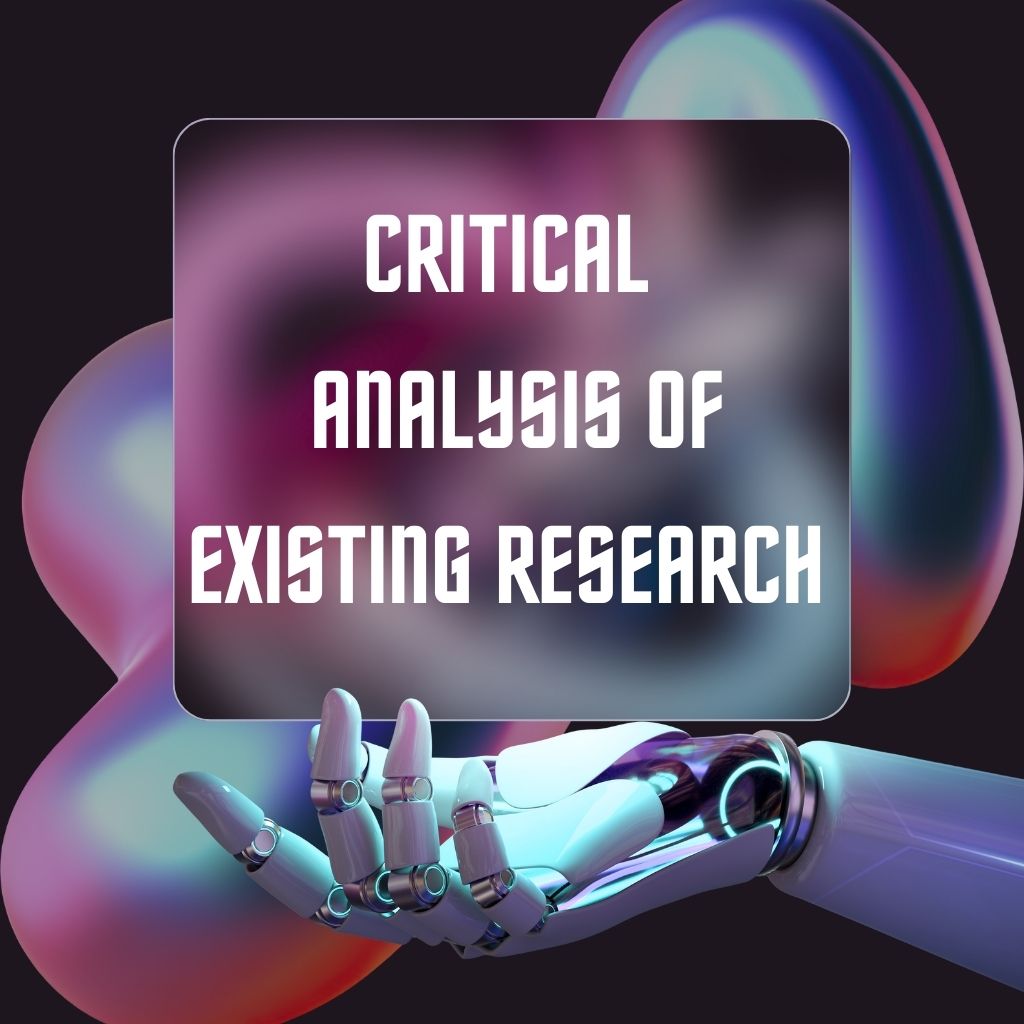Introduction
Critical analysis of existing research is an essential skill for any researcher or student looking to engage with scholarly materials effectively. This process involves a detailed examination and evaluation of research studies, allowing individuals to assess their quality, relevance, and contribution to the field. In an era where information is abundant, the ability to critically analyze research ensures that scholars can discern credible sources from unreliable ones. For researchers seeking to streamline this process, tools like MyWordAi.com serve as invaluable resources. Powered by advanced AI technology, MyWordAi assists users in conducting thorough research evaluations without the need to master complex AI prompting techniques.

Understanding Critical Analysis
Critical analysis is the process of evaluating and interpreting a piece of research. Unlike general analysis, which may simply summarize findings, critical analysis delves into the underlying assumptions, methodologies, and implications of the research. This deeper examination is crucial for several reasons:
- Validity of Findings: Researchers must assess whether the conclusions drawn are justified based on the evidence presented.
- Contextual Understanding: Understanding the context in which the research was conducted helps in interpreting its applicability to other scenarios.
- Identification of Gaps: Critical analysis reveals gaps in the literature that may warrant further investigation.
By honing critical analysis skills, researchers become better equipped to engage with academic work meaningfully.
Critical Analysis of Existing Research: Evaluating Research
When evaluating scholarly sources, researchers should consider several key criteria:
- Authority: Is the author an expert in the field? What are their qualifications?
- Accuracy: Are the claims supported by reliable data? Is the information free from errors?
- Currency: How recent is the research? Is it still relevant in the current context?
- Relevance: Does the research address a significant question or problem in the field?
Peer review plays a pivotal role in this evaluation process, as it serves as a quality control mechanism that ensures only rigorous research is published. Engaging with peer-reviewed articles is essential for anyone conducting serious academic research.
Critical Analysis of Existing Research: Critique of Literature
Conducting a literature review is a fundamental aspect of critical analysis. This process allows researchers to summarize and synthesize existing research, highlighting trends and areas needing further exploration. Some techniques for conducting effective literature reviews include:
- Thematic Analysis: Grouping studies based on themes helps in understanding the broader trends in the literature.
- Comparative Analysis: Comparing different studies allows researchers to identify contradictions or unique contributions in the field.
Various tools and resources are available to assist in conducting literature reviews, such as citation management software and databases like Google Scholar and PubMed.
Critical Analysis of Existing Research: Analyzing Scholarly Sources
Analyzing scholarly sources requires a nuanced approach, particularly when distinguishing between qualitative and quantitative research. Each type has its strengths and weaknesses, and understanding these differences is crucial. For instance:
- Qualitative Research: Focuses on understanding human experiences, often through interviews or focus groups. Researchers must consider the subjective nature of the findings and the potential for researcher bias.
- Quantitative Research: Involves statistical analysis and numerical data. It is essential to examine the appropriateness of the methodology and whether the results are statistically significant.
Furthermore, identifying biases and gaps in existing research is critical for providing a balanced view and advancing knowledge in the field.
Practical Application: Using MyWordAi
To enhance the research process, many researchers are turning to tools like MyWordAi. This automated academic writer, powered by advanced AI technology, simplifies the critical analysis of research. Some features include:
- Automated Summaries: MyWordAi can generate concise summaries of academic papers, allowing researchers to quickly grasp key points.
- Source Evaluation Tools: It provides guidelines and checklists for evaluating sources, ensuring that users consider all essential criteria.
- Literature Review Assistance: The tool aids in organizing and synthesizing literature, making it easier to identify trends and gaps.
By leveraging MyWordAi, researchers can focus on higher-level analysis and synthesis, saving time and enhancing the quality of their work.
Conclusion
In conclusion, critical analysis of existing research is an indispensable skill for researchers and students alike. By mastering the art of evaluation and critique, individuals can navigate the complex landscape of academic literature more effectively. As the research environment continues to evolve, tools like MyWordAi offer a practical solution for those looking to enhance their academic writing and research capabilities. Embrace the future of research by utilizing MyWordAi to streamline your critical analysis process today.
Download the MyWordAi app now from the PlayStore and experience automated academic writing at its best!